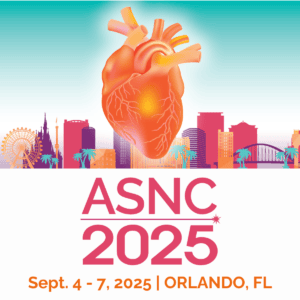On July 14, the Centers for Medicare & Medicaid Services (CMS) released the 2026 Medicare Physician Fee Schedule (MPFS) proposed rule. In the days ahead, your advocacy team will analyze the rule and report on specifics that may impact your practice as well as any actions ASNC will take.
Following is a top-line analysis of a few key proposals.
Medicare Physician Fee Schedule Conversion Factor
CMS’s proposed conversion factor for 2026 varies depending on whether a physician is participating in an Advanced Alternative Payment Model (AAPM).
- The conversion factor for physicians not participating in an AAPM is estimated to be $33.42, which takes into account the 0.25 percent statutorily required update to the conversion factor for 2026 and the 2.5 percent positive adjustment recently signed into law as part of H.R. 1, the One Big Beautiful Bill Act. This would result in an increase of 3.62 percent over the 2025 MPFS conversion factor.
- For physicians who are participating in an AAPM, the estimated conversion factor is $33.59, which accounts for the 0.75 percent statutorily required update to the conversion factor for 2026 and the 2.5 percent positive adjustment from H.R. 1. This would yield an increase of 3.83 percent over the 2025 MPFS conversion factor.
Proposed Efficiency Adjustment
CMS has traditionally relied on survey data provided by the American Medical Association Relative Value Scale Update Committee (AMA RUC) to develop practitioner time, work intensity, and practice expense data. In the proposed rule, CMS expresses concern that the time assumptions built into the valuation of MPFS services are “very likely overinflated.” As a result, CMS proposes the application of an efficiency adjustment to the work RVU and intraservice portions of physician time of non-time-based services that CMS expects would accrue gains in efficiency over time. The efficiency adjustments would apply periodically to all codes except those that are time based.
CMS proposes using the sum of the past 5 years of the Medicare Economic Index productivity adjustment percentage, which would be -2.5 percent for 2026.
Practice Expense Changes
Practice expense data used in CMS’s payment methodology currently relies on the AMA’s Physician Practice Information (PPI) Survey data from 2008. Due to survey limitations in the 2024 data, CMS is not proposing to implement the practice expense or cost shares from the AMA’s PPI or Clinician Practice Information survey for 2026.
Instead, CMS proposes using data from routinely updated hospital data (from the Hospital Outpatient Department) to set relative rates and inform cost assumptions. In 2026, CMS would use this approach in setting rates for radiation treatment and some remote-monitoring services.
Details to Come
Analysis of these payment changes will be complicated. ASNC will release further details on their impact when available, along with payments charts (offered as a benefit of membership). ASNC will also submit comments to CMS, which are due Sept. 12, 2025.
Please refer to the following documents:
- 2026 Medicare Physician Fee Schedule Proposed Rule
- 2026 Medicare Physician Fee Schedule Proposed Rule Fact Sheet
Get Answers to Your Billing and Reimbursement Questions at ASNC2025
 For help understanding the Medicare Physician Fee Schedule proposed for 2026 as well as other health policy, reimbursement, and billing issues, register yourself, your practice administrator, and your billing team for ASNC2025. Be sure to mark your calendar to attend Radioactive Revenue: Decoding 2025’s Billing Breakthroughs and other sessions in the Business of Nuclear Cardiology Track.
For help understanding the Medicare Physician Fee Schedule proposed for 2026 as well as other health policy, reimbursement, and billing issues, register yourself, your practice administrator, and your billing team for ASNC2025. Be sure to mark your calendar to attend Radioactive Revenue: Decoding 2025’s Billing Breakthroughs and other sessions in the Business of Nuclear Cardiology Track.
ASNC2025 will be held Sept. 4-7 in Orlando, Florida. Virtual registration is available.
Article Type
News & Announcements
Category
Advocacy
Related Posts
Immediate Impact! ASNC Statement Driving Cardiac PET Adoption Across the United States
“ASNC’s Clinical Indications for PET statement got the attention of our hospital…
This Legislation Would Halt Pay Cut Now Impacting Most Physician Services
“The 2.5% reduction to work RVUs – the so-called ‘efficiency adjustment’ –…
Manufacturer Shares Update on HMDP Supply
ASNC is staying in touch with radiopharmaceuticals manufacturers that were expecting shortages…



